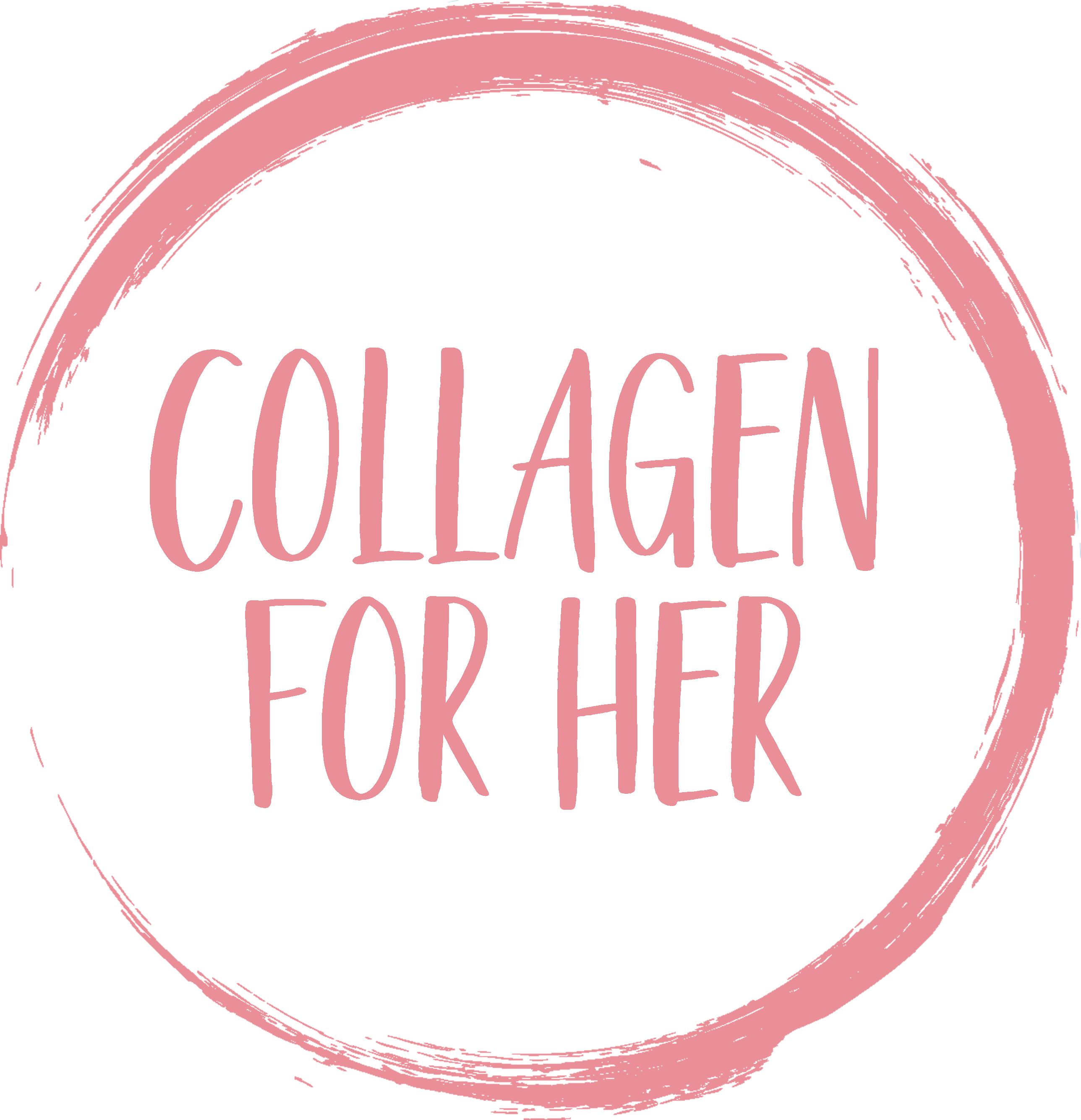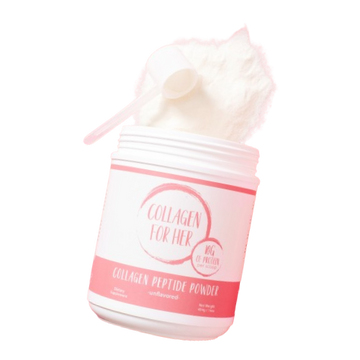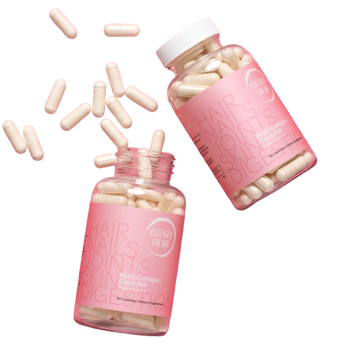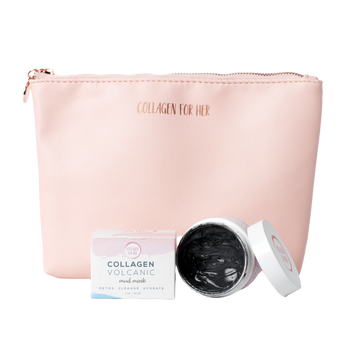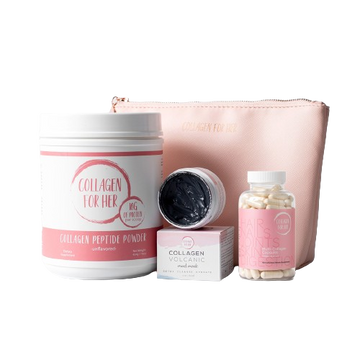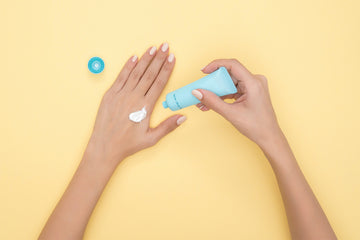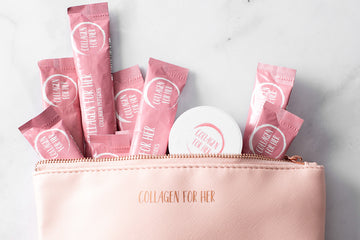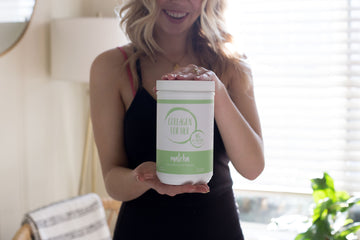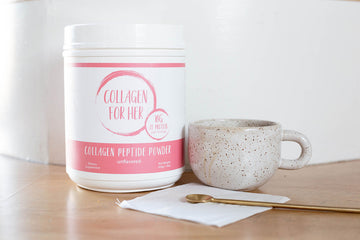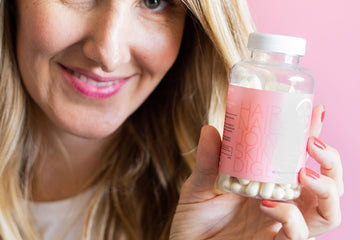We all know by now that our bodies naturally start making about 1% less collagen each year starting at the age of 25 but are there other environmental and lifestyle factors that could be working against us to diminish our collagen?
Collagen is the most abundant protein in our bodies and makes up a majority of the protein in our skin, bones, and digestive tract. This is why when our bodies lose collagen we start to experience things such as thinning hair, wrinkles, joint pain, and poor digestion. Taking a collagen supplement can help replenish some of the collagen our bodies are naturally losing but being aware of the other factors that could be depleting collagen is also critical.* Here are five things that could be diminishing the collagen in your skin:
1. Too Much Sun Exposure
It is no secret that unprotected sun exposure can cause premature aging and damage to your skin but did you know it can also break down collagen faster? According to dermatologist Dr. Jessica Weiser, “sunlight emits ultraviolet radiation, which can accelerate collagen and elastin breakdown, increase pigmentation, increase risk for skin cancer, and accelerate the aging process.”
The best way to protect your skin from the sun is to wear SPF 30 or higher every day. Save the collagen!
2. Lack of Sleep
We’ve all heard the term “beauty sleep” but did you know it’s a real thing? Sleep is crucial for skin to repair and regenerate, so getting enough sleep allows your body to repair damaged collagen and help prevent the formation of wrinkles. A lack of sleep can also have negative effects on your immune system which can affect the production of collagen within the skin. Experts recommend aiming for 7-8 hours of sleep per night!
3. Chronic Stress
When we think of stress, we often think of emotional stress but a lack of sleep, poor nutrition, and other lifestyle choices can also cause stress within the body. High amounts of cortisol, the stress hormone, can break down the skin’s collagen and elastin. Among other things, this can result in the formation of wrinkles and can give your skin a lackluster appearance.
Feeling stressed makes it hard to sleep, stick to a healthy diet, find the motivation to exercise, and so much more. It is super important to discover the best ways for you to manage stress and practice it regularly to not only preserve the appearance of your skin but manage your overall health and wellness.
4. Lack of Vitamin C
Vitamin C is an essential nutrient to help the body create, absorb, and store collagen. Its antioxidant properties help fight free radicals, shield the skin from impacts of pollution, and reduce damage caused by UV radiation. Luckily, Vitamin C is easy to come by in the form of whole foods and supplements. Vitamin C is found in citrus fruits, bell peppers, strawberries, and leafy greens. We also included 100% daily value of Vitamin C in our Marine Collagen Beauty Blend. You’re welcome ;) 5. Excessive Alcohol Consumption
We love a Friday night margarita just as much as the next person but keep in mind that excessive alcohol consumption can be extremely dehydrating for our skin. When our skin is dehydrated, the fibers can start to crack which can lead to dry, flaky skin and even the development of wrinkles on the skin’s surface. Being aware of your alcohol consumption and staying hydrated are super important when it comes to the appearance of your skin.
Summary
If one of your goals is to improve the appearance of your skin, these five lifestyle factors are great places to start. If you want a little extra help, adding a collagen supplement to your diet can also help replenish some of the collagen that your body is naturally losing.*
Shop Our Collagen Supplements Here
References:
- https://www.insider.com/does-stress-cause-wrinkles#:~:text=Stress%20can%20cause%20wrinkles%20to,accelerating%20the%20formation%20of%20wrinkles.
- https://www.teenvogue.com/story/sunlight-helping-skin
- https://www.healthline.com/nutrition/vitamin-c-foods
- https://www.kamipure.com/blogs/news/9-things-that-kill-your-natural-collagen
- https://www.verywellhealth.com/collagen-supplements-4164818
